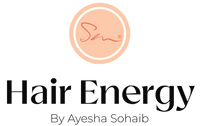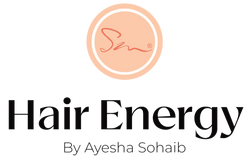The right Acne Face Wash is the first step on the path to clear, radiant skin. This is not a superficial choice; it affects the overall efficacy of your skin care regimen and, in the end, the condition and look of your skin. Acne is not just a physical ailment. It frequently undermines one's self-esteem, which results in social anxiety and low self-worth. One of the most important steps in taking back control of your skin and your confidence is choosing a face cleanser wisely.
What Causes Acne?
When oil and dead skin cells clog hair follicles, acne appears. Numerous things, such as excessive oil production, bacterial development, hormonal changes, and even some drugs, may be to blame for this. Choosing a specific therapy is made easier by being aware of these causes.
Different Types of Acne
Acne can appear in multiple forms, including blackheads, whiteheads, pustules, papules, nodules, and cysts. Each type varies in severity and requires specific treatments. Recognizing the type of acne you have is crucial for choosing an effective face wash.
The Role of Hormones in Acne
Hormonal changes, particularly during puberty, menstrual cycles, pregnancy, and periods of high stress, can exacerbate acne. Hormones like androgens increase oil production, leading to clogged pores and acne flare-ups.
Ingredients to Look For
· Salicylic Acid
A beta hydroxy acid (BHA) known for its ability to penetrate deep into the pores to dissolve dead skin cells and excess oil. Salicylic acid reduces inflammation and unclogs pores, making it ideal for treating acne.
· Benzoyl Peroxide
This powerful antibacterial ingredient kills acne-causing bacteria and helps reduce inflammation. It is effective in preventing future breakouts but can be drying, so it’s best used in moderation.
· Tea Tree Oil
A natural antibacterial and anti-inflammatory agent, tea tree oil can reduce the severity of acne. It’s a suitable option for those looking for a natural treatment alternative.
· Alpha Hydroxy Acids (AHAs)
AHAs, such as glycolic acid and lactic acid, work by exfoliating the surface layer of the skin, promoting cell turnover, and improving skin texture. They are beneficial for treating acne and fading post-acne marks.
· Beta Hydroxy Acids (BHAs)
Similar to AHAs, BHAs like salicylic acid penetrate deeper into the pores to exfoliate and remove dead skin cells and oil. They are particularly effective for oily and acne-prone skin.
· Niacinamide
Also known as Vitamin B3, niacinamide helps reduce inflammation, regulate oil production, and improve the skin’s barrier function. It is a versatile ingredient that benefits all skin types.
· Sulfur
Sulfur helps dry out the skin’s surface to absorb excess oil and unclog pores. It also has antibacterial properties, making it effective in treating acne.
Skin Types and Acne Face Wash
Oily Skin
For oily skin, choose a gel or foam cleanser that can effectively remove excess oil without over-drying. Ingredients like salicylic acid or benzoyl peroxide are beneficial.
Dry Skin
Dry skin requires a gentle, hydrating cleanser that doesn’t strip natural oils. Look for cream-based cleansers with ingredients like hyaluronic acid or glycerin.
Combination Skin
Combination skin needs a balanced cleanser that addresses both oily and dry areas. Formulas with a mix of hydrating and oil-controlling ingredients are ideal.
Sensitive Skin
Sensitive skin benefits from mild, fragrance-free cleansers with soothing ingredients like aloe vera or chamomile to reduce irritation and inflammation.
Innovative Solutions for Acne-Prone Skin
Renowned skincare brand Hairenergy is known for its creative and potent skincare solutions for skin prone to acne. They have a line of face washes that are mild on the skin and tackle acne at its root with chemicals like salicylic acid, tea tree oil, and niacinamide, all of which have scientific backing.
Daily Skincare Routine for Acne-Prone Skin
Cleansing
Cleansing twice a day is essential for removing dirt, oil, and makeup without over-stripping the skin. Choose a gentle yet effective cleanser that suits your skin type.
Toning
Toning helps to balance the skin’s pH levels and remove any residual impurities. Use a toner with ingredients like witch hazel or rose water to soothe and refresh the skin.
Moisturizing
Even acne-prone skin needs hydration. Use a non-comedogenic moisturizer to maintain the skin barrier without clogging pores.
Sunscreen
Protecting your skin from UV damage is crucial, especially if you’re using acne treatments that make your skin more sensitive to the sun. Opt for a broad-spectrum, non-comedogenic sunscreen.
Choosing the Right Texture
Gel Cleansers
Gel cleansers are lightweight and work well for oily and acne-prone skin, providing a deep clean without over-drying.
Foam Cleansers
Foam cleansers are airy and suitable for normal to oily skin, offering effective cleansing with a light texture.
Cream Cleansers
Cream cleansers are hydrating and gentle, ideal for dry or sensitive skin. They cleanse without stripping natural moisture.
Natural vs. Chemical-Based Face Washes
Benefits of Natural Face Washes
Natural face washes often contain fewer irritants and synthetic chemicals, making them gentler on the skin. They use ingredients like aloe vera, chamomile, and tea tree oil, which can be soothing and effective.
Efficacy of Chemical-Based Face Washes
Chemical-based face washes often contain potent active ingredients like salicylic acid, benzoyl peroxide, and glycolic acid. These ingredients can be more effective in treating stubborn acne but may also cause irritation if not used correctly.
Dermatologist Recommendations
When to Consult a Dermatologist
If over-the-counter products aren’t effective or if you have severe acne, it’s wise to consult a dermatologist. They can provide personalized treatment plans and prescribe stronger medications if necessary.
Recommended Products by Dermatologists
Dermatologists often recommend products from brands like La Roche-Posay, CeraVe, and Neutrogena for their effective formulations and skin-friendly ingredients.
Homemade Acne Face Wash Recipes
Honey and Lemon Cleanser
Mixing honey, a natural antibacterial agent, with lemon juice, which exfoliates and brightens the skin, creates an effective homemade cleanser.
Apple Cider Vinegar Wash
Diluted apple cider vinegar can balance the skin’s pH and remove excess oil, making it a natural alternative for treating acne.
Aloe Vera and Tea Tree Oil Cleanser
Combining aloe vera, which soothes and heals the skin, with tea tree oil’s antibacterial properties, offers a gentle yet effective acne treatment.
The Psychological Impact of Clear Skin
Confidence Boost
Clear skin can significantly enhance self-confidence, leading to a more positive self-image and greater willingness to engage in social interactions.
Social Interactions
Improved skin can reduce anxiety and self-consciousness in social settings, fostering better personal and professional relationships.
Mental Health
The psychological impact of clear skin extends to mental health, with reduced stress and improved mood resulting from a clearer complexion.












